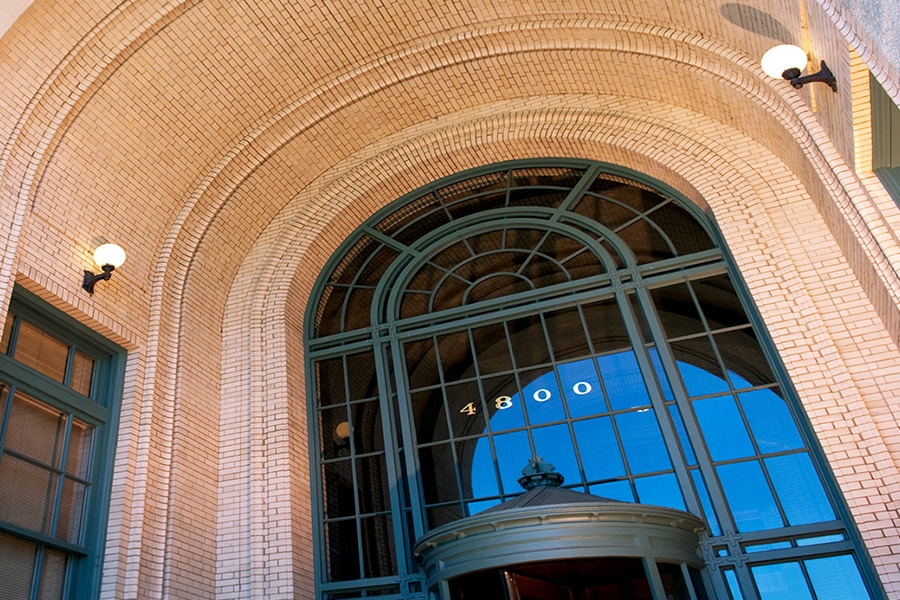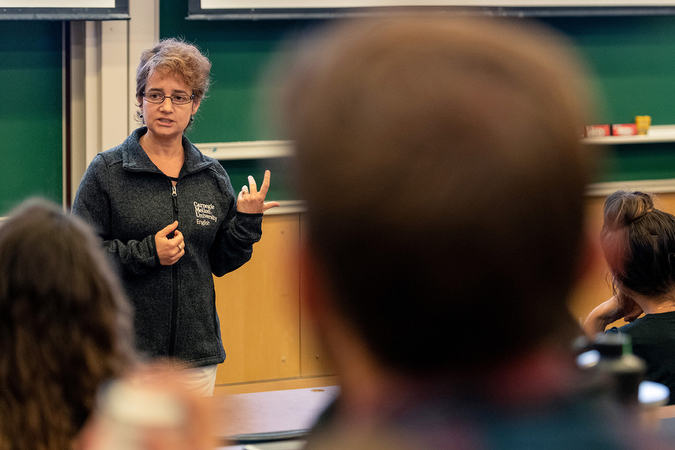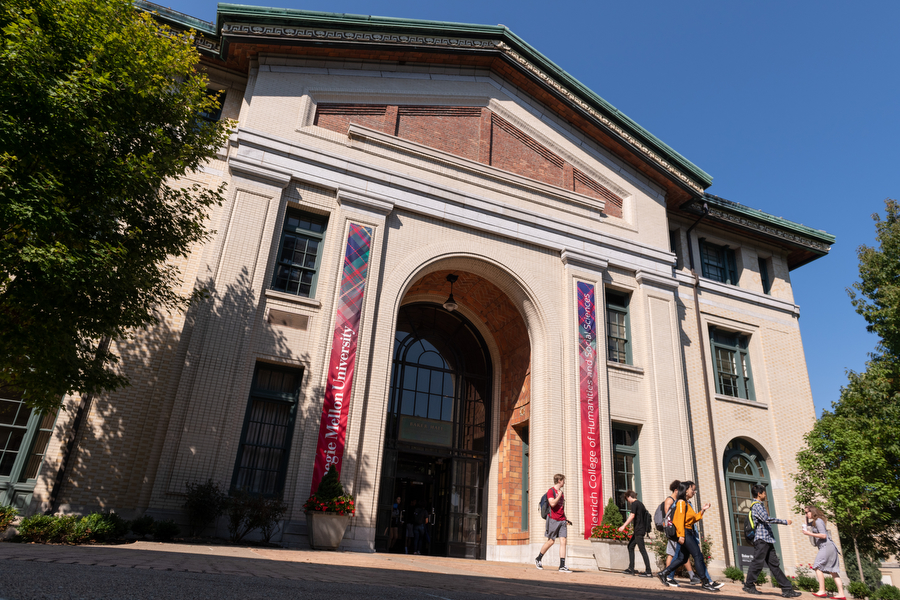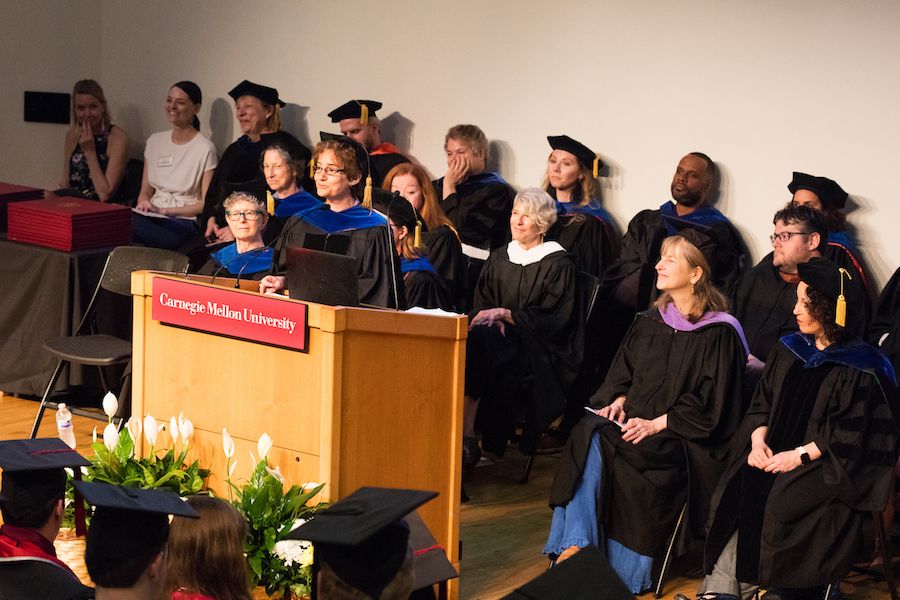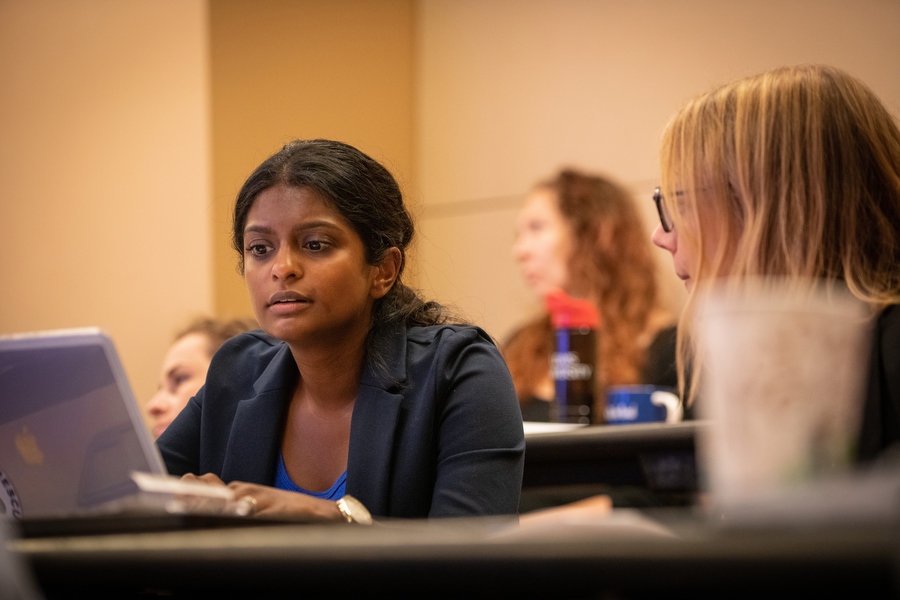Ph.D. in Rhetoric Program
The Ph.D. program in Rhetoric is distinguished by its focus on rigorous method and the diversity of specialized methods/contexts (traditional-scholarly, empirical, discourse-based, classroom-based, legal, digital) in which rhetoric can be studied. Students are encouraged to pursue their interests in rhetoric in conjunction with an accomplished and supportive faculty.
The Doctor of Philosophy in Rhetoric at Carnegie Mellon University is one of the oldest Ph.D. programs in Rhetoric in the United States and one of the most prestigious. Ph.D. candidates focus on how discourse broadly conceived functions across social, legal, political, cultural, gendered, embodied, and material contexts in schools, workplaces, local communities, and larger publics. Students study current theory, history, and field-leading pedagogical practices of rhetoric and discourse as core foundations that will serve them as they develop more specialized analytic methods, both qualitative and quantitative. The foundation and specialized study support dissertation work that frames and seeks to address fundamental and pressing questions in three broad and fluid areas of rhetoric, specifically (1) Civic, Political, and Public Engagement; (2) Corpus-based Writing Pedagogy Across the Disciplines; and (3) Digital Tools & New Media. Students prepare for academic careers in rhetoric and writing pedagogy, including writing program administration, careers as administrators in non-profits, or as qualitative and quantitative data analysts. Fundamental questions addressed in the PhD program including the following:
- How does power circulate in communication?
- How do historical and cultural assumptions about language conceived broadly influence the choices rhetors make in designing messages and the choices audiences make in interpreting them?
- What role does/can technology play in shaping these choices?
- How has the study of rhetoric and writing instruction functioned historically in the academy
- How can we develop new models for writing and communication instruction that prepare students to respond to contemporary rhetorical challenges in their own practice?
- What is the importance of rhetorical acumen in non-academic communities, both in the workplace and in civic society?
- What is the relationship of rhetoric to ethics and good citizenship and how do answers to this question vary across different frameworks?
Faculty Spotlight
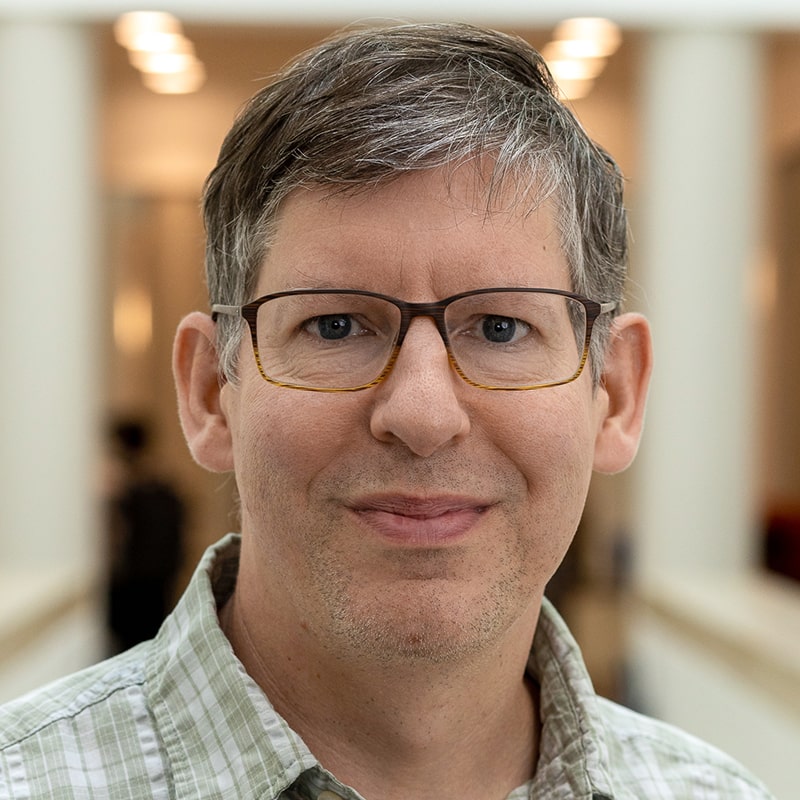 James Wynn
James Wynn
Associate Professor, Rhetoric Program Director
James Wynn has been with the Department of English at CMU since 2006. His research and teaching explore the intersections of rhetoric, science, mathematics, and public policy. He teaches course on climate change, science and the public sphere, argument, and science writing.
Starting in 2023 James will be exploring the theme of planetary hospitality with his colleague Kathy Newman thanks to a grant from the Center for the Arts in Society (CAS). This exploration is part of his larger scholarly project on the rhetorics of astrocolonialism.
